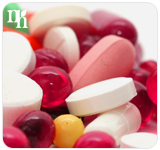It's no wonder that hormone replacement therapy (HRT) is widely used to treat the symptoms of menopause. The treatment is highly effective in doing so, as it directly attacks their root cause: hormonal imbalance. But while HRT can relieve or even eliminate mood swings, hot flashes, and other unpleasant symptoms, it comes with a host of side effects and serious health risks of its own.
Central to these ill effects is breast cancer. Recent studies have linked HRT to an increased risk of this all-too-common disease. Keep reading to learn more about the facts behind HRT's links with breast cancer.
HRT: Is it Safe?

For women facing severe symptoms of menopause, HRT can be a worthwhile and necessary treatment. For others, however, the risks of this treatment far outweigh its benefits. Taking HRT increases a woman's chances of developing breast cancer by 5 to 6% with each year of use, according to the Women's Health Initiative. That's why most physicians recommend taking HRT for a maximum of two years. Many don't recommend the treatment at all.
The good news in this data? The increased risk only seems to apply to current users. The rate of breast cancer appears to decline back to normal in women who have since ended treatment with HRT.
What Are the Alternatives to HRT?
Luckily, HRT is not the only option for women facing the negative effects of menopause. There are numerous other options available; most of these treatment options are much cheaper and safer and, in many cases, just as effective.
Almost all experts agree that lifestyle changes should be a critical component of any plan to find menopause relief. Exercise, eating healthy, and relieving stress through relaxing activities not only helps you stay healthy, but boosts hormonal production — a central component to menopause relief.

For a doubly effective regimen, try combining these lifestyle changes with alternative medicines. Herbal remedies like dong quai and black cohosh are thought to help replace the declining estrogen levels in your body, alleviating the effects of menopause. However, they may cause some of the same side effects as HRT. Hormone-regulating supplements can be a good alternative to those remedies, boosting your body's production of hormones without known side effects.
If you want to continue learning about HRT, click on the following link for more information on HRT.


